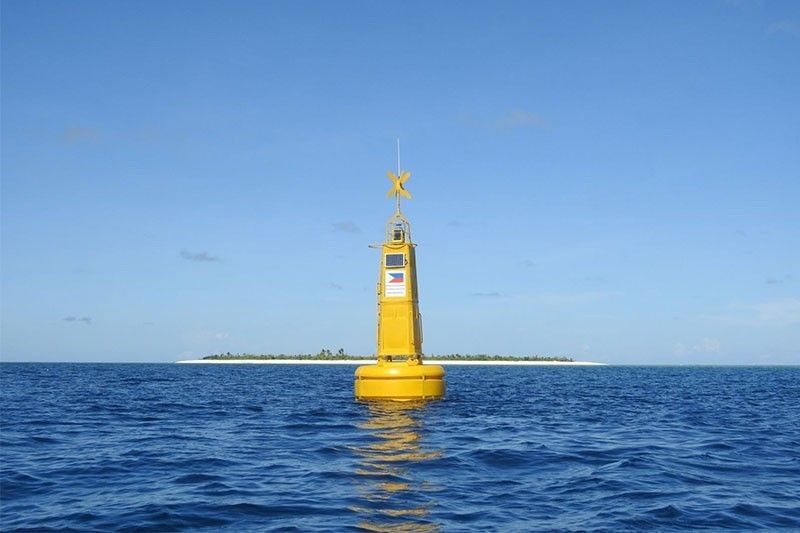Why the Maritime Zones Act is the next crucial step for national sovereignty

As an archipelagic and maritime nation, the Philippines' waters are pivotal to its food and economic security and overall national interests. With more than 7,000 islands held together by waters spanning a total of 220 million hectares, some 60% of the population, or 55.3 million Filipinos, live in coastal communities. These waters are teeming with resources driving and connecting niche economies interspersed across the archipelago.
A 2017 valuation study by eminent marine scientist Dr. Rhodora Azanza found that the country’s total coastal and marine ecosystems’ potential contribution to the Philippine economy per year is valued between US $966.6 billion and US $1.5 trillion, based on 2007 prices. For a nation reliant on the vibrant bounty of the seas, failing to maximize, sustain, and protect the use of these extraordinary resource pools is a travesty.
Having a concrete idea of what you own (territory) and knowing the rights and responsibilities to such ownership (international and domestic law) are necessary steps in securing and governing our waters and seas. Thus, clearly delineating Philippine maritime zones is essential for government to properly harness natural resources and tap the blue economy’s potential.
Progress in Congress
Amid geopolitical risks and tensions in the West Philippine Sea, both houses of Congress have recognized the penultimate role of legislation—that the passage of a maritime zones law anchored on the United Nations Convention on the Law of the Sea (UNCLOS) is needed to define the country’s geographical metes and bounds.
With such a law in place, the Philippines is enabled to assert sovereignty and sovereign rights over the country’s maritime and air spaces. Recent pronouncements by the National Task Force for the West Philippine Sea and various government agencies underscore the urgency for the passage of relevant maritime legislation. The proposed Maritime Zones Act adheres to UNCLOS and is a domestic right to reinforce the 2016 Philippine Arbitral Award, the lawmakers have said.
Following the House of Representatives’ unanimous approval of House Bill 7819 or the proposed Maritime Zones Act, the Senate overwhelmingly established the Special Committee on Philippine Maritime and Admiralty Zones through Resolution 76 s. 2023. Sen. Francis Tolentino, the main author of the Senate version of the Maritime Zones Act, chairs the committee. This marks the first time the bill has reached plenary debates.
RA 5446, the Maritime Zones Act and the Sabah question
At a recent hearing, Sen. Robin Padilla stressed the need to address the Philippines’ position on Sabah, citing its significant landmass and abundance of natural resources such as oil and minerals which, he believes, Filipinos have the right to harness. He noted that the Philippines' stance on Sabah is consistent with Republic Act 5446, otherwise known as Baselines for the Territorial Sea of the Philippines.
While Sen. Tolentino concurred with Sen. Padilla that the Philippine government should be consistent with its claim over Sabah, he clarified, however, that the Maritime Zones Act, based on UNCLOS and the Convention on the Law of the Sea, deals with maritime issues, not land disputes. The Philippines’ claim to Sabah involves land (sovereign) territory, not maritime zones.
Sen. Tolentino also agreed to include a statement asserting the Philippines’ claim over Sabah, provided the phrasing is cognizant of and consistent with Manila’s evolving diplomatic and geopolitical relations with neighboring states to avoid potential diplomatic issues.
Why it’s urgent
The immediate passage of the Maritime Zones Act is vital for enhancing maritime governance, leveraging the blue economy, and implementing UNCLOS and the 2016 Arbitral Award.
Enactment of the Maritime Zones Act will amplify the implementation of maritime laws and enable the country to enjoy its rights over its territory and exclusive economic zone.
The Maritime Zones Act will establish and clarify Philippine maritime boundaries with precision in accordance with UNCLOS. It will also provide a legal basis for the effective exercise of Filipinos’ rights in maritime areas. This puts us in good standing with our partners and allies, and with the wider international community.
Ultimately, the law will not only serve to delineate the Philippines’ geographical extent but also empower government agencies to protect the nation's wealth in its archipelagic waters, territorial sea and exclusive economic zone, and to preserve its use and enjoyment to exclusively benefit the Filipino people. It is time to pass the Maritime Zones Act.
--
Julio S. Amador III is Senior Advisor to Waypoints, Waypoints Project, a group of maritime security specialists, practitioners, scientists, academics, and development workers who advocate for the effective use and protection of the Philippines’ maritime domain.
- Latest




























